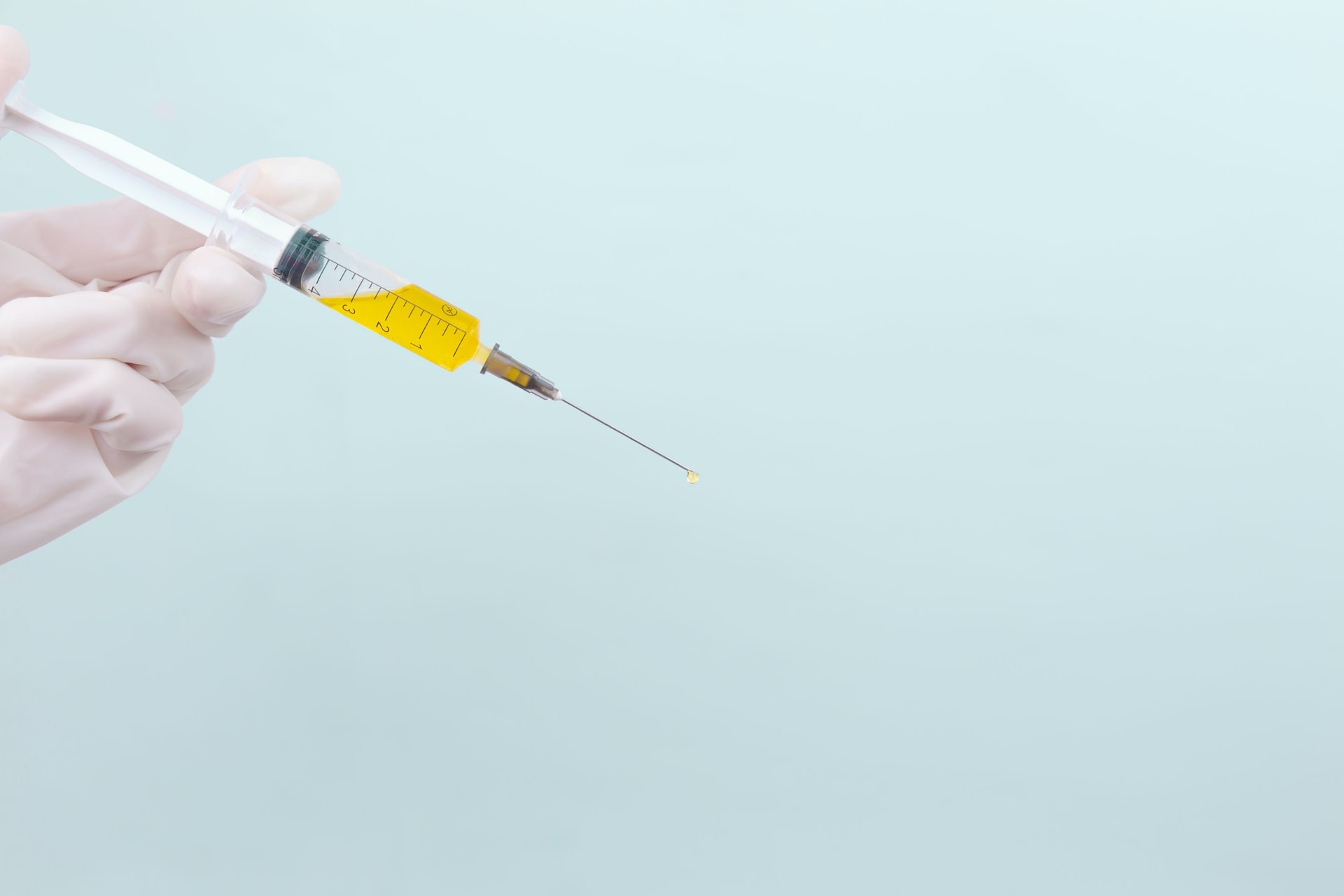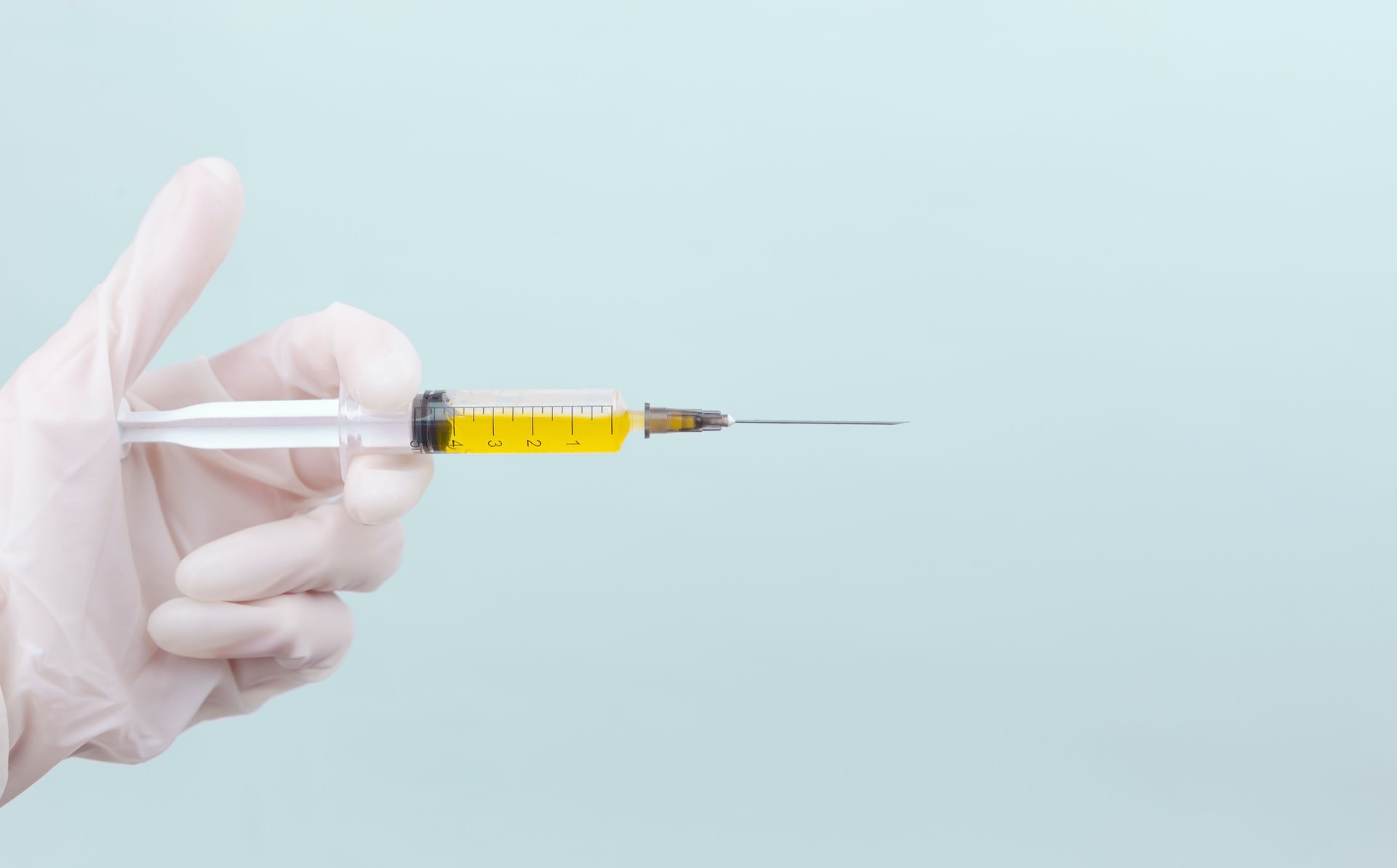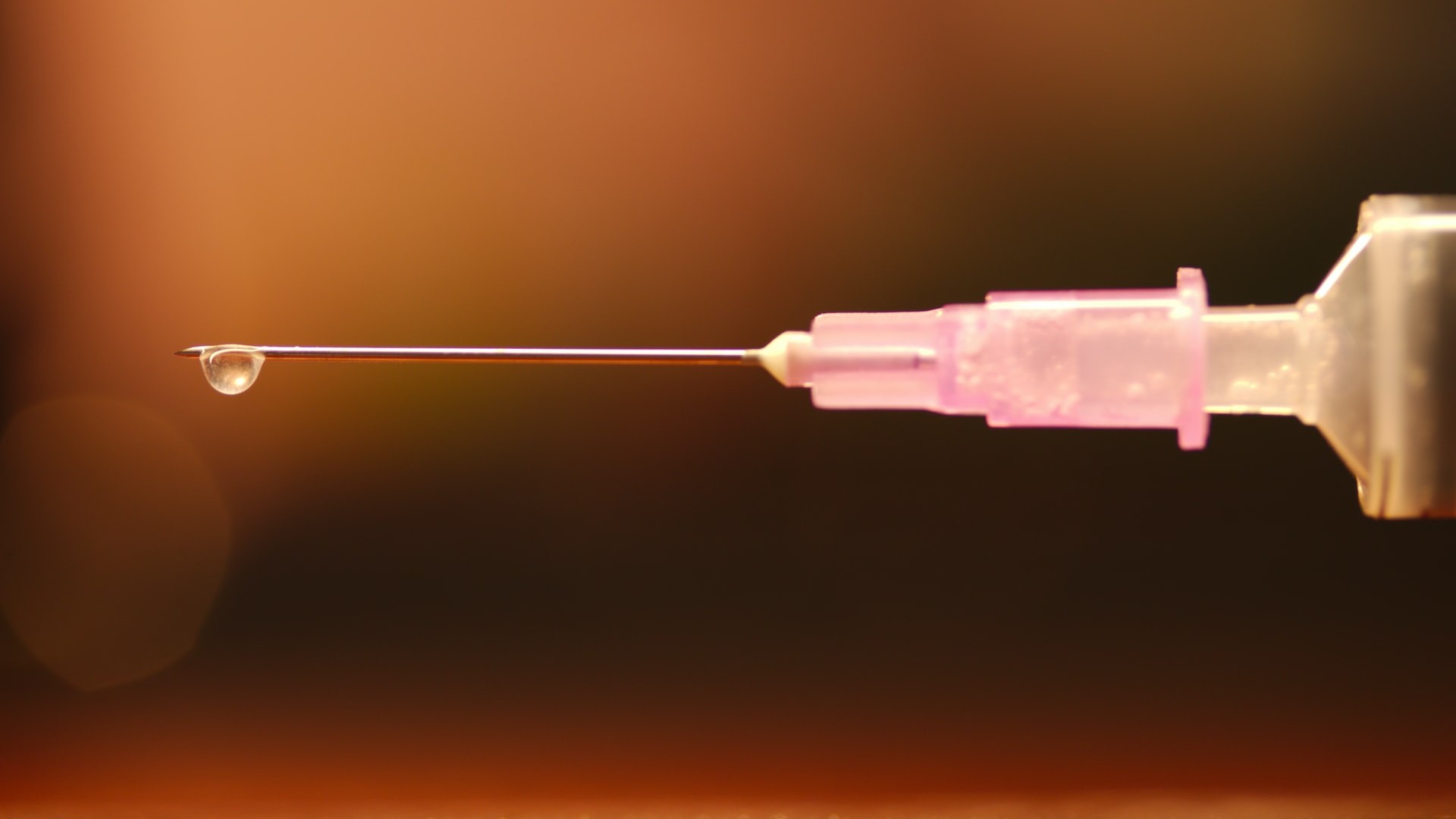Formulate users Jess and Elaine both wrote in with questions about Botox.
Jess asks: "I have a super low pain tolerance, and I hate needles. Blood really freaks me out. I want to get Botox, but I faint when I see blood - is Botox bloody, and what does it feel like? Does it hurt very much? How long does it hurt for?"
Elaine asks: "I heard that you can't wash your face, exercise, or drink for like three days after you get Botox. Is that true? I'm training for a triathlon right now so, uh, that whole not being able to wash your face and not being able to exercise would not work for me."
Thanks for your questions, Jess and Elaine! We know Botox can be confusing. We spoke with several experts to learn the answers to your questions, so you can decide for yourselves if this procedure is right for you.
Does Botox hurt?
Yes, but only a little bit. According to plastic surgeon Dr. Gary Motykie, Botox feels like tiny bee stings. "It's not a super painful treatment, especially once you get used to the feeling of the injections. On the scale of injectables, Botox is considered the most 'comfortable' by most patients."
Facial plastic surgeon Dr. Athley Guthrie reports that Botox feels like several small pinches, similar to a bug bite, and that the discomfort does not last long. "Most physicians use a very small, fine insulin needle (30 or 31 gauge) to perform the injections, which significantly reduces discomfort. Afterwards, some people report a mild achy feeling in the areas injected, but many have no discomfort at all."
The technique used by the person injecting the Botox significantly impacts how much pain is felt by the patient. "Whether or not Botox hurts is dependent on the technique of the injector and the needle gauge (how large) that injector uses," Dermatologist Dr. Elaine Kung explains.
It will be helpful to go to an experienced professional who is well trained and has injected Botox many times. "There are many Botox providers from nurse practitioners, to physician's assistants, to medical doctors. Everyone may be taught a little differently," Dr. Kung continues. "If the injector is light-handed and uses a small gauge needle (30 gauge), then there's less pain, bleeding, or bruising. In my office, I use insulin syringes that are very small gauge so my patients tolerate the procedure. Some of them tell me that it's like getting acupuncture or that it's like a pinch."
Although Botox is generally not considered to be a very painful procedure, options are available for patients who are anxious about the potential pain, or who have a low pain tolerance. Per Dr. Motykie: "Should a patient experience significant pain during the procedureIf a patient experiences significant discomfort, we can apply medical-grade numbing cream to mitigate the pain. However, I'd like to note that most patients do not need any sort of numbing cream for Botox treatment."

Does Botox make you bleed?
Botox might lead to a small amount of bleeding. "There is usually pin-point bleeding- meaning a small dot of blood- from the entry of the needle, but this quickly stops," shares Dr. Kung. "Occasionally, if the injector inadvertently injects a vessel, typically a vein, there can be slightly more bleeding and/or bruising. Even in this case, it stops very quickly with just some gentle pressure. I always apply gentle pressure over the areas injected immediately after in order to reduce the potential for bruising."
Anti-aging specialist Dr. Rahi Sarbaziha says that patients should not expect to see much blood when they get Botox, as long as they follow some precautions. "With any needle stick there is always the chance of blood - some people bleed more than others and it's highly recommended that you avoid blood thinners at least 24-48 hours prior to the procedure. Overall it is not a bloody procedure and in general, the patient will not see the blood."
Can you wash your face after Botox?
You can wash your face after receiving Botox, but you'll want to be careful. It's helpful to wait for several hours, to use a gentle cleanser, and to avoid rigorously manipulating your facial muscles.
Dr. Motykie explains, "Every provider has their own protocol when it comes to post-treatment care, but I tell my patients that they can use a gentle cleanser before going to bed later in the day. I don't recommend washing your face immediately after treatment." Keep in mind that your provider will clean the site of the injection before and after the Botox, so there won't be an urgent need to wash your face.
Washing your face vigorously and too soon after receiving Botox could change the way the product affects the face. "I advise my patients to wait 4-6 hours before washing their faces," explains Dr. Guthrie. "I want to the Botox to have a chance to settle into the muscles before the face is manipulated at all. This also means I don't want my patients bending over or lying flat for 4-6 hours, as the Botox has the potential to spread from its intended injected site before that time. I also ask my patients to use only a mild, gentle cleanser the night of their Botox, because the tiny openings in the skin from the injection may not yet be fully closed/healed and I don't want them to cause irritation with an aggressive product (I.e. an exfoliant, retinol, acid, etc)."

Dr. Sarbaziha says that although you'll need to be careful when washing your face, it is essential to keep your face clean post Botox: "Any poke in the skin creates an open wound (even if microscopic in nature) so ensuring that you wash with gentle soap and water is important."
Can you exercise after Botox?
Most experts recommend avoiding vigorous exercise for one to two days after receiving Botox. Dr. Guthrie says that engaging in rigorous exercise too quickly after the procedure could result in unwanted consequences: "Strenuous exercise will raise your blood pressure, which can in turn worsen bruising. The increased circulation may also make it more likely for the Botox to migrate into an unwanted location, which can lead to complications such as eyelid or eyebrow drooping."
Light exercise right after Botox, like a brief walk, doing household chores, or buying groceries, is fine, and should not increase the likelihood that you experience adverse events or side effects. But most healthcare providers and professionals agree that activities where your head might be down for extended periods (yoga/ hot yoga) or where your face is being manipulated (facial massage, facials) are things that should be avoided for 12-24 hours.
It's helpful to communicate with your doctor about what you plan to do for the next few days, exercise-wise, so they can give you their best advice. "If you're considering Botox treatment, tell your provider about your exercise habits prior to injection - they'll be able to advise on a case-by-case basis," shares Dr. Motykie. "For example, if you're a swimmer, you'll definitely want to skip the pool because the pressure from the tight goggles could move the product around."
It's also important to discuss with your doctor how frequently you exercise before receiving Botox, as your workout habits may affect how long the Botox is effective. Communicating with your provider about exercise may help you develop a realistic vision of how often you will require appointments for further injections. "People who work out a lot may find that the benefits from Botox may wear off faster than someone who doesn't work out a lot," shares Dr. Kung. "In other words, someone who works out a lot may find their Botox benefits last 3 months as opposed to 4 months or more."
Can you drink alcohol after Botox?
Most experts advise to avoid alcohol both before and after receiving Botox. Alcohol is a blood thinner, which means it may make you more likely to bleed during Botox or bruise after Botox.
"Every provider has their own protocol when it comes to alcohol consumption and Botox", says Dr. Motykie. "I tell my patients to avoid alcohol for 24 hours prior to treatment. If they do have a drink the night before, it's not the end of the world, they just might bleed a little bit during the treatment, and they run the risk of light (temporary) bruising following treatment. I would never advise a patient to consume alcohol after Botox injections, but we're all human and I know that some do. The primary risk would be an increased chance of bruising at the injection sites".
Dr. Sarbaziha says that she knows some of her patients may drink after receiving Botox. For those patients, she cautions them to limit their consumption to one to two drinks. "Excessive alcohol use can lead to drunken behavior which can cause you to move your head, lay your head down prematurely, and can also lead to delayed healing."
Wanna learn more about the world of skin and hair care? Here's your next read:
Frizzy Curly Hair Care 101
How to defrizz your curls and get 'em back into shape!
Hot Rollers Vs. Curling Irons
What's the difference between hot rollers and curling irons?
Difference Between a Mole and a Freckle
What's the difference between a mole and a freckle?
Moisturizer vs Lotion: What's the difference?
Can you use body lotion on your face?
Tips For Washing Hair In Hard Water
This is your guide to washing your hair in hard water
Minimalist Hair
Welcome to the wonderful world of minimalist hair
Type of Combs: Materials and Shapes
Your complete guide to picking out a comb




